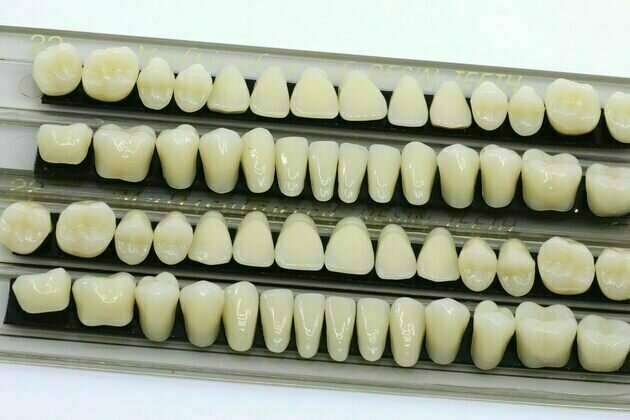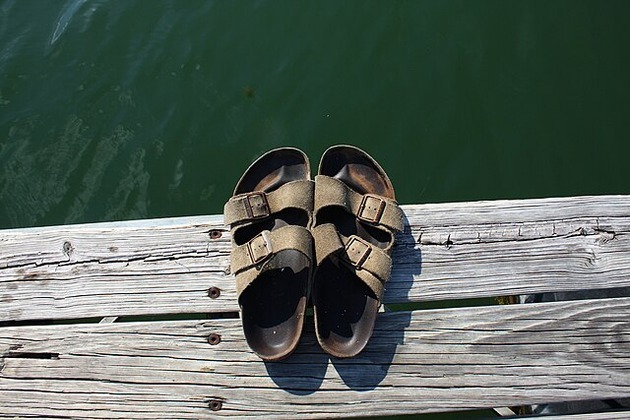Teeth record the hidden history of your childhood climate and diet
The Conversation
09 Jul 2025, 02:34 GMT+10

The climate we live in affects our lives in profound ways: hot summers, cold winters, dry spells and wet weather all leave their mark.
For growing children, one way seasons and storms are recorded is in their teeth. As we have shown in new research, teeth contain a week-by-week climatic history of their owner's childhood.
To establish this, we studied the teeth of wild chimpanzees, captive macaque monkeys, and a woman born in Brisbane in January 1990. Her infancy included distinctive weather events - but its more powerful use is to reveal the climates that shaped individual lives thousands or even millions of years ago.
You wouldn't know it, but changes in rainfall and temperature cause subtle changes in drinking water. Specifically, they affect the proportions of different atomic variants of oxygen (the isotopes oxygen-18 and oxygen-16).
Under a microscope, you can see tiny lines inside teeth that correspond to daily layers of growth. Using a machine called the Sensitive High Resolution Ion MicroProbe (SHRIMP) at the Australian National University, we vaporised spots of enamel corresponding to these lines and analysed the oxygen isotopes in the vapour.
Once we know about the balance of oxygen isotopes, we can work backwards to determine changes in drinking water and the corresponding climatic conditions.
Our Australian tooth donor began her life during a wet summer during which a cyclone dumped enormous amounts of rain on Brisbane and surrounds, and months of high rainfall in the region persisted through to autumn.
Her tooth enamel formed during the summer of 1990 showed oxygen isotope trends that were consistent with the rainfall patterns at the time. The minimum values occurred close in time to the wettest period, and the maximum values happened towards the end of the long dry spell that began later in the year.
After she reached her first birthday, these climate markers became more challenging to interpret. This likely happened because she began to consume more cooked foods, which carry a different isotope balance from raw food and breast milk.
Thankfully, the SHRIMP can also help us learn more about these dietary changes by measuring nitrogen isotopes in the tooth dentine (which is found under the outer layer of enamel). There is a known relationship between the balance of nitrogen-15 and nitrogen-14 and the protein in a child's diet.
In an earlier study, we looked at these records in the same tooth. Mothers' milk contains high levels of nitrogen-15, and our donor showed a clear signal of rising values from birth. Shortly after six months of age, her nitrogen isotope ratio began to fall, as her mother gradually began offering her fruits and vegetables to supplement her exclusive milk diet.
During our donor's second year of life, she was fed more solid foods, including bread, cheese, eggs, and yogurt - leading to a further decline in the isotopic ratio. She continued breastfeeding at night for a few months into her third year, and finally as she ceased nursing entirely, her nitrogen values reached a minimum.
Fine-scaled isotopic studies such as these are a world first. Teeth are typically sampled with hand-held drills or small saws to measure inputs from water and food.
These coarse sampling methods are relatively common and inexpensive, but they cannot show short-term changes in the composition of teeth. This limits how well they can be used to identify important environmental or dietary changes.
Our new technique has many applications. We've studied Neanderthal children from the Rhone basin of southeastern France, who experienced some rough seasons 250,000 years ago. By SHRIMPing thin tooth slices, and relating this to enamel formation ages, we were even able to estimate the seasons in which one child was born and weaned 2.5 years later.
We have just begun to produce isotopic weaning curves for humans who lived several hundred to several thousand years ago, yielding new insights into ancient maternal behaviour and infant health.
This technology can also be applied to much more ancient fossils, including apes who lived in Africa 17 million years ago. In this instance, isotopic differences between fossils were consistent with other evidence that a changing climate played an important role in influencing the anatomy and development of humanity's forebears.
Teeth hold many more tales, and technological breakthroughs such as those at the Australian National University will continue to reveal hidden details of our ancient humanity as well as the unintended consequences of our modern lifestyles.
 Share
Share
 Tweet
Tweet
 Share
Share
 Flip
Flip
 Email
Email
Watch latest videos
Subscribe and Follow
Get a daily dose of Massachusetts Sun news through our daily email, its complimentary and keeps you fully up to date with world and business news as well.
News RELEASES
Publish news of your business, community or sports group, personnel appointments, major event and more by submitting a news release to Massachusetts Sun.
More InformationInternational
SectionThousands gather in Himalayas as Dalai Lama celebrates 90th birthday
DHARAMSHALA, India: The Dalai Lama turned 90 on July 6, celebrated by thousands of followers in the Himalayan town of Dharamshala,...
Fans perform WWII-era Fascist salute at Marko Perković’s mega concert
ZAGREB, Croatia: A massive concert by popular Croatian singer Marko Perković, known by his stage name Thompson, has drawn widespread...
U.S. Treasury Secretary says Musk should steer clear of politics
WASHINGTON, D.C.: Elon Musk's entry into the political arena is drawing pushback from top U.S. officials and investors, as his decision...
TikTok building U.S.-only app amid pressure to finalise sale
CULVER CITY, California: TikTok is preparing to roll out a separate version of its app for U.S. users, as efforts to secure a sale...
Trump defends use of 'Shylock,' citing ignorance of slur
WASHINGTON, D.C.: President Donald Trump claimed he was unaware that the term shylock is regarded as antisemitic when he used it in...
Summer travel in chaos as French air traffic controllers walk off job
PARIS, France: A strike by French air traffic controllers demanding improved working conditions caused significant disruptions during...
Business
SectionFedEx, UPS step up as Canada Post loses market share in strikes
OTTAWA, Canada: With Canada Post struggling to maintain operations amid labour unrest, rivals like FedEx and UPS are stepping in to...
U.S. stocks steady Tuesday despite tariffs turmoil
NEW YORK, New York - U.S. and global markets showed a mixed performance in Tuesday's trading session, with some indices edging higher...
Beijing blamed for covert disinformation on French fighter jet Rafale
PARIS, France: French military and intelligence officials have accused China of orchestrating a covert campaign to damage the reputation...
Birkenstock steps up legal battle over fakes in India
NEW DELHI, India: Birkenstock is stepping up its efforts to protect its iconic sandals in India, as local legal representatives conducted...
Beijing hits back at EU with medical device import curbs
HONG KONG: China has fired back at the European Union in an escalating trade dispute by imposing new restrictions on medical device...
Wall Street reels after Trump invokes new tariffs
NEW YORK, New York - Monday's trading session saw mixed performances across U.S. and global markets, with several major indices posting...













